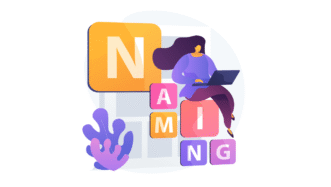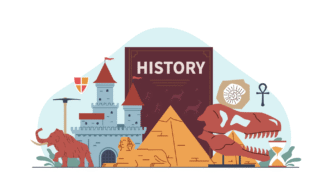LESSON OVERVIEW
The main objectives of this lesson are to:
- discuss twin studies and the nature vs. nurture debate;
- watch a video on twin research;
- practise advanced conditional structures to explore hypothetical scenarios.
With this lesson, students talk about twins, read a short text about nature vs. nurture and work with useful vocabulary for the discussion (e.g. hereditary, predisposition, genetic makeup). They also watch a psychology professor discuss twin research in a video, review conditional sentences and use it to talk about life-changing scenarios.
WARM-UP AND VIDEO
This lesson explores advanced conditional structures and starts with a warm-up. Students read information about identical twins and fraternal twins and discuss questions about twins and their similarities and differences. After that, they read a text about the nature vs. nurture debate and choose the correct words (e.g. intricate, multifaceted, hereditary) to complete gaps. Then, students share their opinions on the influence of genetics on behaviour. Afterwards, they watch the first part of a video in which a psychology professor talks about twin research and finish sentences about it. Following that, students watch the second part of the video and summarize what is said about genetic influence on traits. Next, they discuss the twin research considering its impact and ethics.
ADVANCED CONDITIONAL STRUCTURES AND DISCUSSION
At this point in this lesson, students work with advanced conditional structures. They choose the correct option to complete questions on hypothetical scenarios about genetics and human development (e.g. If scientists could alter genes to increase intelligence, how would this affect our society?). Then, students discuss the questions. After that, they choose some scenarios (e.g., being born in a different country, knowing more about how genetic makeup affects our development, living in a different city) and create conditional sentences to explain how they would change their life. Students use different sentence beginnings (e.g. Had…, If only…, Otherwise,…).
HOMEWORK/REVISION
This lesson plan also includes an additional task that you can use as homework or revision. In the task, students write conditional sentences about a text using provided words and phrases. The task is available in the teacher’s version of the worksheet. You can print it and hand it out to your students. It’s also included in the e-lesson plan.
WORKSHEETS
Subscribe to unlock these and many other Standalone lesson lesson plans with the Unlimited plan
Subscribe











Great topic!
I love the documentary “Three Identical Strangers” on this. It’s heart-wrenching but extremely compelling
Glad you liked it! That documentary is definitely a powerful watch.
Great stuff, Olia, as always. Keep these interesting and informative lessons coming! Wonderful, thoroughly engaging!
Thanks so much! Happy you’re enjoying the lessons😊
Thanks for this interesting lesson! I little remark about the phrase SET/written/carved IN STONE. In the teacher’s version it’s written that the correct option is SET in stone. But various resources say that 3 of them are correct, they are synonymic with slight difference in meaning
Thanks for bringing this to our attention! We’ve fixed it so it’s no longer confusing. We appreciate your input 🙂